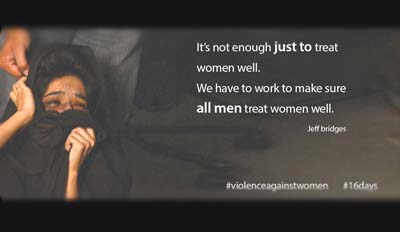PECA: Are we there yet?
By Frieha Aziz
On August 11, 2016, the Prevention of Electronic Crimes Act (PECA) 2016 was passed by the National Assembly of Pakistan. It received the assent of the President on August 18, 2016 and was published in the Extraordinary Gazette of Pakistan on August 22, 2016.
Many justifications were cited for the enactment of PECA by the government and opposition alike, like it was the need of the hour, that hate speech online had to be controlled and that people's lives and reputations had to be protected. Eight months have passed since then. The events that have transpired in these last eight months are a clear indicator of just how much hate-mongering, incitement, harassment and targeting of individuals, has increased, or decreased since the enactment of the law.
Last week, at a meeting of the Senate's Standing Committee on Information Technology and Telecom, State Minister for IT Anusha Rehman remarked "that the internet was bound by Pakistani culture, traditions, religion and the Constitution, adding that the government would not allow it to be 'hijacked' by NGOs in the name of freedom of expression."
The law against cybercrimes which was passed does not constitute even 40pc of the draft the ministry had prepared, the minister told the Senate committee.
Why do our committees, instead of questioning the government and its officials on the job they must perform, content themselves with grandiose statements and rhetoric, accepting them at face value?
If the government is serious about the implementation of the law for protection of the people, eight months on, where are the rules? Courts? Capacity of the FIA, PTA, prosecutors, and courts to deal with cases? Recourse for the average person? Where is the half yearly report that had to be submitted to parliament?
But while arrests have been made under this law, why is it that there have only been bail hearings for those arrested, but no trial?
Recommendations on the implementation and oversight of PECA
Even though victims of threats, malicious campaigns and harassment have yet to find recourse through law, where the law has been swift to act is against a satirical website such as Khabaristan Times for example and once again banning social media platforms is part of the public narrative - even after the law.This, essentially, stems from a failure to still grasp how the Internet and technology function, and where and how the law can or cannot be applied.
Finally, on 31st March, the law division sent the Ministry a notification setting up the courts under PECA.








